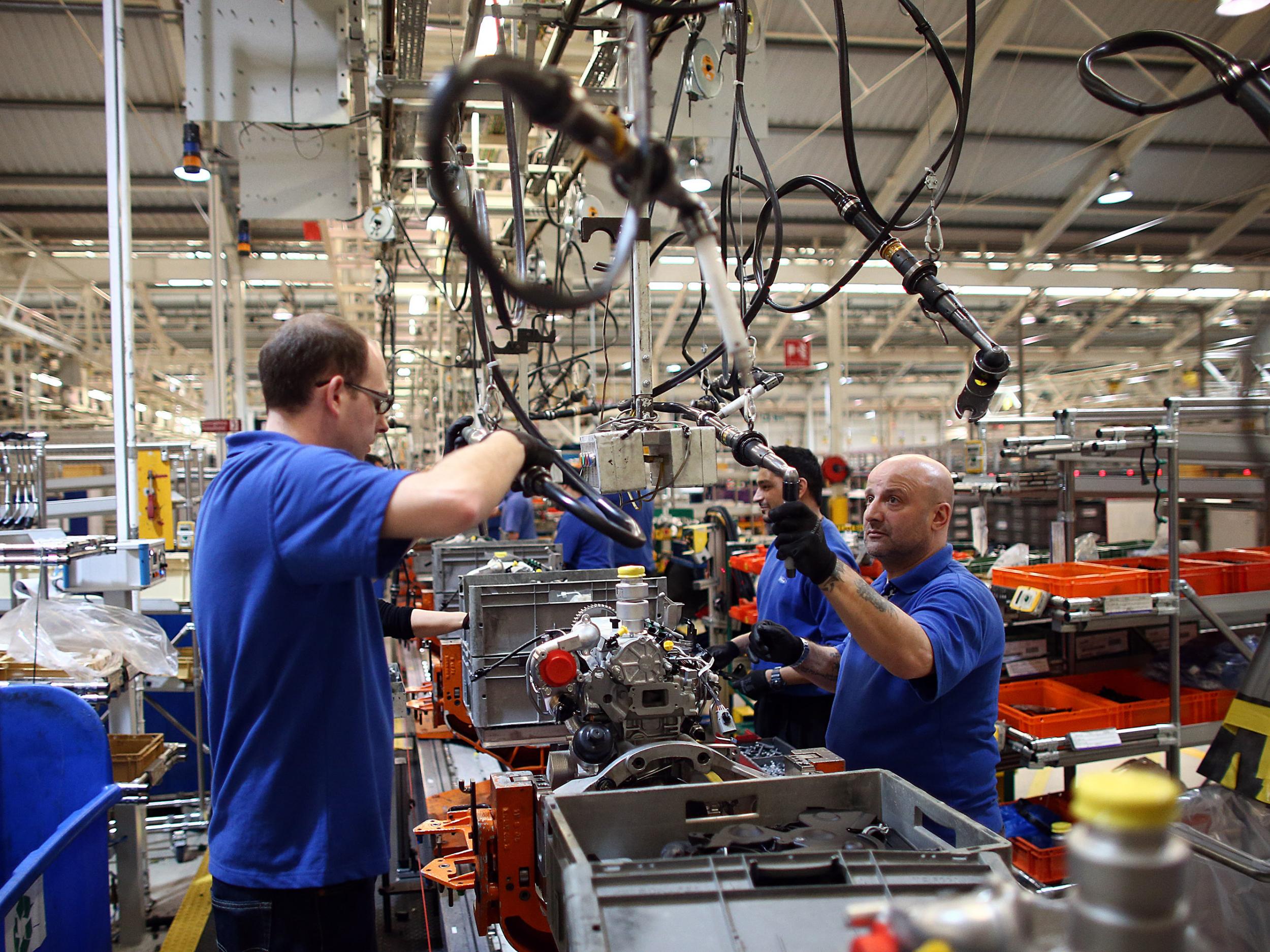UK economic growth beats expectations but Brexit problems continue
GDP growth figure increases likelihood that Bank of England will raise interest rates when it meets next week

The UK economy expanded more than expected in the third quarter, but economists warned that growth remained lacklustre amid Brexit-related uncertainty and poor productivity.
GDP grew at 0.4 per cent in the three months from July to September, up from 0.3 per cent in the previous quarter and slightly higher than the 0.3 per cent predicted by City analysts.
However, the economy is still growing at a slower pace than it was last year. The country is now on track for its worst annual growth performance since the depths of the recession after growing just 1.0 per cent in the first nine months of the year, its slowest rate for the January to September period since 2009.
"All in all, it appears that the economy is running around 0.5 per cent per year more slowly than prior to the EU referendum," said Peter Dixon, an economist at Commerzbank.
The services sector, which accounts for the majority of the UK economy "continued to drive GDP growth", the Office for National Statistics said on Wednesday.
Manufacturing also boosted the headline GDP figure after improving from a weak second quarter. However, the construction sector fell into recession after shrinking for the second quarter in succession.
Despite growth remaining tepid, the better-than-expected GDP figure increases the likelihood that the Bank of England's Monetary Policy Committee will raise interest rates when it meets next week.
The prospect of a rate rise saw the pound gain almost half a cent against the dollar to $1.3172 after the ONS' announcement.
Ben Brettell, senior economist at Hargreaves Lansdown said the figures meant a rise in the benchmark rate to 0.5 per cent was a "near-ceartainty".
However, he said such a move would be "largely symbolic" as it merely reverses the cut from 0.5 per cent to 0.25 per cent that the MPC made last year.
Mr Brettell added: "Despite today’s marginal improvement, growth has been relatively lacklustre this year. Brexit-related uncertainty is the obvious scapegoat – and it’s played a part, discouraging business investment and causing a spike in inflation."
"Yet the underlying problem is a familiar one: productivity. Output per hour of labour is no higher today than before the 2008 financial crisis."
Responding to the latest figures, Chancellor Philip Hammond said he would focus on boosting productivity in next month's budget.
The UK’s 0.3 per cent growth rate in the second quarter of 2017 was half the 0.6 per cent expansion of the 19 member eurozone.
It was also the lowest growth rate among all the G7 nations.
The British economy has been slowing this year as the impact of inflation, stemming from the steep fall in the value of sterling in the wake of the June 2016 Brexit vote, has eroded households’ incomes.
Consumer price inflation hit 3 per cent in September, the highest since April 2012, and well as being well above the recent annual rate of average wage growth.
The Bank of England’s Monetary Policy Committee is widely expected by financial market traders to raise interest rates at its meeting next week in order to curb what several MPC members have identified as growing inflationary pressures.
This would be the first hike by the central bank since before the financial crisis began a decade ago, although the Bank has been careful to stress that it does not expect rates to rapidly return to their pre-crisis levels.
The Bank cut rates to their current record low of 0.25 per cent in the wake of the 2016 Brexit vote in order to support the economy.
Most economists expect that the economy will deteriorate further next year if the UK appears to be heading for Brexit in 2019 without a transition deal that would keep Britain effectively in the customs union and the single market.
Last week the OECD predicted growth of just 1 per cent next year, reflecting a collapse of business investment in the face of “no deal” Brexit and a sharp cut in household spending as fear builds.
Subscribe to Independent Premium to bookmark this article
Want to bookmark your favourite articles and stories to read or reference later? Start your Independent Premium subscription today.

Join our commenting forum
Join thought-provoking conversations, follow other Independent readers and see their replies